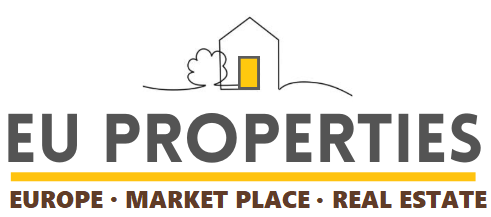The European real estate market is one of the most dynamic and competitive industries, shaped by factors such as economic growth, urbanization, and shifting investment trends. From new construction projects to real estate agencies driving property sales, competition remains strong across various sectors.
1. The Growing Construction Sector
New developments across Europe continue to fuel the real estate market. Countries such as Germany, France, Spain, and the Netherlands are seeing increased demand for residential and commercial properties. Key factors driving construction include:
- Urban expansion: Major cities require new housing, office spaces, and infrastructure.
- Sustainability: Energy-efficient buildings and eco-friendly developments are becoming standard.
- Government incentives: Some countries, like Portugal and Greece, offer investment incentives to boost real estate development.
Despite economic fluctuations, construction remains one of the strongest sectors in real estate, with developers competing to create modern, attractive properties.
2. The Role of Real Estate Agents
In a competitive market, real estate agents play a vital role in helping buyers, sellers, and investors navigate complex transactions. The demand for skilled agents remains high across Spain, Italy, France, and Germany, where the real estate market is highly localized. Key advantages of using agents include:
- Market expertise: Agents understand local property values, legal processes, and investment potential.
- Access to exclusive listings: Many premium properties are only available through agents.
- Negotiation skills: Agents help secure the best deals for buyers and sellers.
As competition increases, real estate agencies must adapt to digital platforms, social media marketing, and innovative tools to stay ahead.
3. The Competitive Real Estate Market
Europe’s real estate market is highly competitive, with various players influencing industry trends:
- Traditional real estate firms: Well-established agencies dominate in major cities, offering full-service solutions.
- Online platforms: Digital real estate marketplaces like EUProperties are reshaping the way people search for homes and investment opportunities.
- Developers and investors: Large real estate investment firms and developers compete for prime locations and high-value projects.
As technology advances, online property listings, virtual tours, and AI-driven recommendations are changing how buyers and investors make decisions.
4. Challenges and Opportunities
Despite its strength, the European real estate market faces challenges such as:
- Rising construction costs: Supply chain disruptions and labor shortages are increasing costs.
- Housing shortages in major cities: Urban areas like Berlin, Paris, and Amsterdam struggle with high demand and limited supply.
- Regulatory changes: New laws on property ownership, taxation, and rental policies impact the industry.
At the same time, opportunities exist for those who adapt to market trends, embrace technology, and focus on sustainable development.
Final Thoughts
The European real estate industry is constantly evolving, with construction firms, real estate agents, and investors competing for market share. Staying informed on local market trends, digital transformation, and regulatory updates is key to success.
For those looking to buy, sell, or invest, EUProperties provides a competitive platform that connects buyers with agents and listings across Europe.









